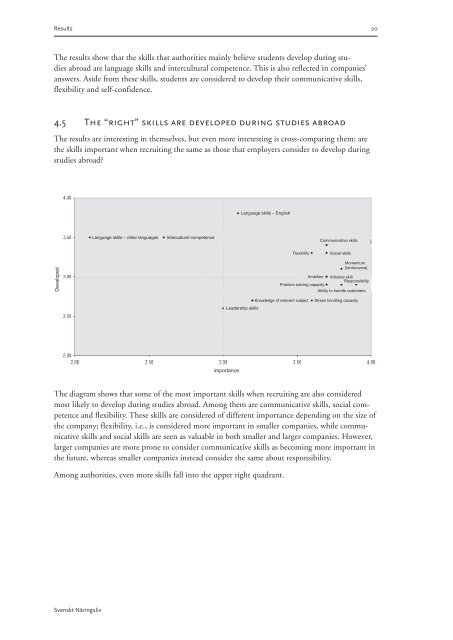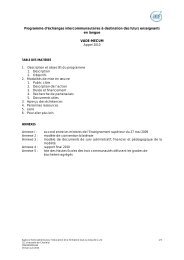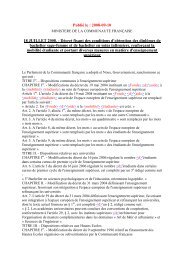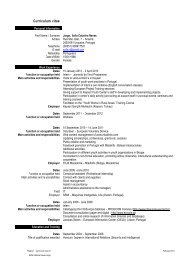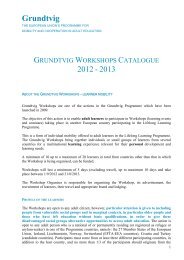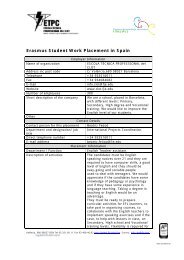Employers' view on studies abroad - Svenskt Näringsliv
Employers' view on studies abroad - Svenskt Näringsliv
Employers' view on studies abroad - Svenskt Näringsliv
You also want an ePaper? Increase the reach of your titles
YUMPU automatically turns print PDFs into web optimized ePapers that Google loves.
Results 20<br />
The results show that the skills that authorities mainly believe students develop during <strong>studies</strong><br />
<strong>abroad</strong> are language skills and intercultural competence. This is also reflected in companies’<br />
answers. Aside from these skills, students are c<strong>on</strong>sidered to develop their communicative skills,<br />
flexibility and self-c<strong>on</strong>fidence.<br />
4.5 The “right” skills are developed during <strong>studies</strong> <strong>abroad</strong><br />
The results are interesting in themselves, but even more interesting is cross-comparing them: are<br />
the skills important when recruiting the same as those that employers c<strong>on</strong>sider to develop during<br />
<strong>studies</strong> <strong>abroad</strong>?<br />
Language skills – English<br />
Language skills – other languages<br />
Intercultural competence<br />
Communicative skills<br />
Flexibility<br />
Social skills<br />
Developed<br />
Momentum<br />
[/endurance]<br />
Ambiti<strong>on</strong> Initiative skill<br />
Resp<strong>on</strong>sibility<br />
Problem solving capacity<br />
Ability to handle customers<br />
Knowledge of relevant subject<br />
Leadership skills<br />
Stress handling capacity<br />
importance<br />
The diagram shows that some of the most important skills when recruiting are also c<strong>on</strong>sidered<br />
most likely to develop during <strong>studies</strong> <strong>abroad</strong>. Am<strong>on</strong>g them are communicative skills, social competence<br />
and flexibility. These skills are c<strong>on</strong>sidered of different importance depending <strong>on</strong> the size of<br />
the company; flexibility, i.e., is c<strong>on</strong>sidered more important in smaller companies, while communicative<br />
skills and social skills are seen as valuable in both smaller and larger companies. However,<br />
larger companies are more pr<strong>on</strong>e to c<strong>on</strong>sider communicative skills as becoming more important in<br />
the future, whereas smaller companies instead c<strong>on</strong>sider the same about resp<strong>on</strong>sibility.<br />
Am<strong>on</strong>g authorities, even more skills fall into the upper right quadrant.<br />
<strong>Svenskt</strong> Näringsliv


